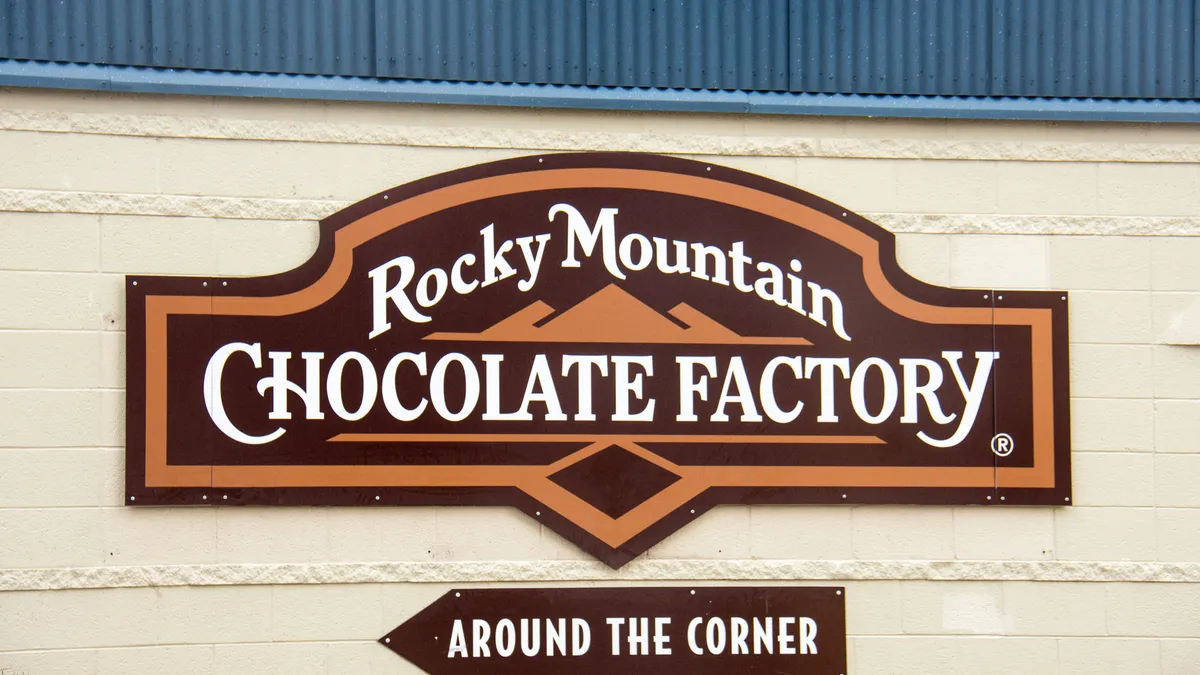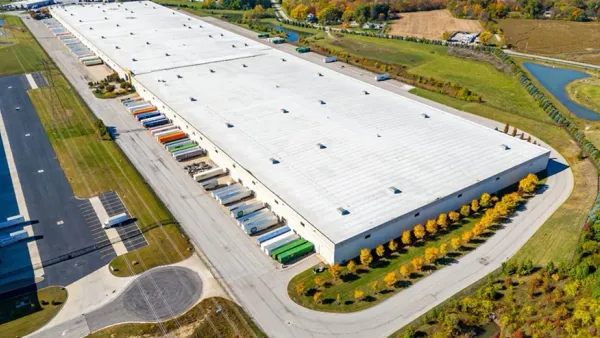Dive Brief:
- Rocky Mountain Chocolate Factory is pursuing $1.2 million in annual cost savings through initiatives tied to warehousing, transportation, manufacturing and processing improvement, Director and CEO Robert Sarlls said on a May 24 earnings call.
- The chocolate maker and franchisor's planned measures include simplifying its factory operations through SKU rationalization, the use of cross-docking providers for faster deliveries and outsourcing its last mile fulfillment and e-commerce logistics needs.
- Rocky Mountain Chocolate Factory will implement the cost savings plan over the next 18 months as part of a broader push to accelerate its growth and profitability. It saw a $1.9 million net loss from continuing operations in Q4, which ended Feb. 28.
Dive Insight:
Rocky Mountain Chocolate Factory wants its supply chain to become faster and leaner to help it catch up to competitors and regain market share after years of underperformance.
"The company’s focus drifted away from being customer and franchisee centric and the company made too many investments that strayed away from core chocolate manufacturing, brand marketing, franchising and brick-and-mortar retail," Sarlls said.
The first steps in its transformation plan are already underway.
The company wrote off nearly $600,000 in obsolete inventory in Q4, Sarlls said. Whittling down stock has allowed the company to exit "now unnecessary third-party storage locations" in its hometown of Durango, Colorado, and a nearby state, the CEO added.
The company, which makes chocolate candies at its Durango manufacturing plant, has also made progress on cutting less-popular SKUs and improving its production processes. Product quality and consistency is a top priority, and the company is taking steps to reduce excessive product variation, Sarlls said.
"For perspective, our defects and reworks have been over 6% and our goal is to reduce this to less than 1% over the next three to five years," Sarlls said. "Cost savings will come from less labor, manufacturing and waste."
For products with more variability in the manufacturing process, Rocky Mountain Chocolate Factory "will utilize third parties to avoid the bottlenecks and added costs that have historically accompanied these types of products," Sarlls added.
The company is also implementing its leaner operating model downstream, in part by looking at opportunities to use cross-docking providers.
Companies rely on cross-docking services for fast replenishment of goods with minimal storage time. Using providers for deliveries to franchisees will help the company trim lead times, increase delivery frequency and reduce costs, Sarlls said.
Frequent deliveries are necessary for Rocky Mountain Chocolate Factory stores to ensure product freshness, and most locations do not have significant space to store inventory, according to the company's annual financial report. As a result, the company encourages franchisees and store managers to only order quantities they can expect to sell within two to four weeks.
Rocky Mountain Chocolate Factory also aims to speed up deliveries to online customers, which will aid its efforts to boost e-commerce sales from less than 2% of its revenue mix to 10%. Outsourcing logistics for online orders will allow the company to reap the benefits from more distribution centers and technology without the heavy investments and long timelines to get them up and running, Sarlls said.
"With the plan in place, we can now entirely focus our attention on improving execution in the factory, in retail stores and online," Sarlls said.















